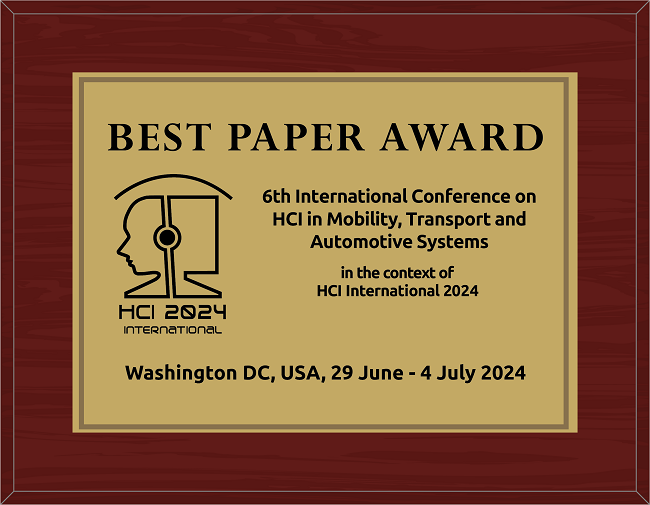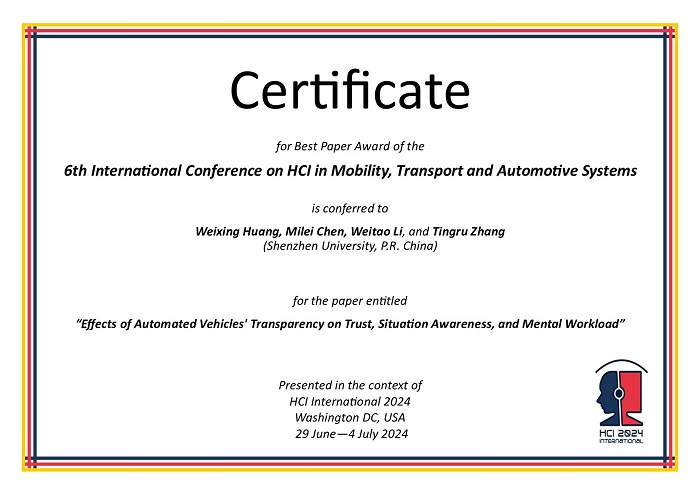
The Best Paper Award of the 6th International Conference on HCI in Mobility, Transport and Automotive Systems
has been conferred to
Weixing Huang, Milei Chen, Weitao Li, and Tingru Zhang
(Shenzhen University, P.R. China)
for the paper entitled
"Effects of Automated Vehicles' Transparency on Trust, Situation Awareness, and Mental Workload"

Tingru Zhang
(presenter)

Best Paper Award for the 6th International Conference on HCI in Mobility, Transport and Automotive Systems, in the context of HCI International 2024, Washington DC, USA, 29 June - 4 July 2024

Certificate for Best Paper Award of the 6th International Conference on HCI in Mobility, Transport and Automotive Systems presented in the context of HCI International 2024, Washington DC, USA, 29 June - 4 July 2024
Paper Abstract
Understanding the behavioral intentions and decision-making mechanisms of automated vehicles (AVs) is one of the reasons why people trust them. This study aims to explore the main effect of AV transparency on trust, situation awareness and mental workload, while considering whether different driving experiences and scenario types have a moderating effect on the above results. This study conducted a driving simulation experiment. The experiment adopted a three-factor mixed design with AV transparency (No Explanation, What-only, Why-only, What+Why) and driving experience (Not Rich, Rich) as between-subject variables, and scenario type (Expected, Unexpected) as within-subject variables. To balance the impact of the scenario presentation order in the experiment, half of the participants were exposed to the scenarios in order from expected to unexpected, and the other half were exposed to the scenarios in order from unexpected to expected. Froty-eight participants (24 females and 24 males) participated in the experiment. The research found that increased transparency information help people better perceive and understand AVs while having less workload. In addition, the research found that drivers with rich driving experience are less dependent on the information provided by the AVs. The study also found that drivers have higher trust and lower anxiety in AVs in expected scenarios.
The full paper is available through SpringerLink, provided that you have proper access rights.